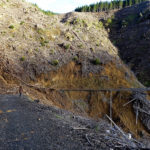
In 2010, two federal agencies agreed—in an order signed by a federal judge— to withhold a portion of Oregon’s federal grant funds if Oregon failed to gain approval of its program to control runoff pollution in coastal watersheds. In January of this year, the Environmental Protection Agency and National Oceanic and Atmospheric Administration made a formal determination that Oregon’s program is inadequate to protect water quality. Think pollution in the form of temperature, sediment, and pesticides.
By all rights, today’s story should be that the federal agencies withheld 30 percent of this year’s federal grant funds, expected to be disbursed today, July 1. Instead, NWEA has had to return to court to obtain a second court order in which the federal agencies have agreed not to release the penalty money until NWEA has an opportunity to challenge such a decision before the court.
The result protects NWEA’s rights but how on earth did we get here? Why are two federal agencies even considering violating a federal court order and a federal statute? Frankly, we don’t have any answers other than it’s politics as usual. Why federal agencies think that politics as usual will cajole Oregon into protecting water quality from logging and farming is beyond us to understand since that approach has distinctly not worked over the last 17 years.
NWEA is represented in this case by Paul Kampmeier, of the Washington Forest Law Center and the newly-formed law firm Kampmeier & Knutsen, and Allison LaPlante, of the Earthrise Law Center at Lewis and Clark Law School.
